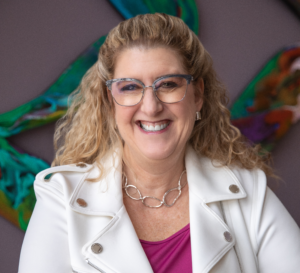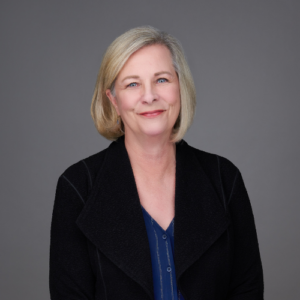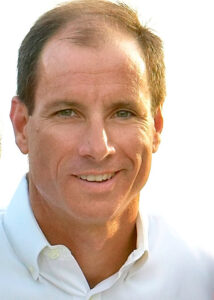In this episode, we are talking about confidence for adults with ADHD or for that matter confidence building for anyone.
Back on the podcast is Alyssa Dver, founder of the American Confidence Institute. Alyssa is one of the leading authorities on the subject of confidence out there today.
Confidence is something that allows adults with ADHD to thrive. Many of us struggle with self-doubt which sometimes gets in the way of being our best selves, especially in our career or the workplace.
 When we have confidence, then we can earn the trust of others in the workplace, leadership, clients, and others. And it’s just an awesome feeling when we can walk into work and be confident.
When we have confidence, then we can earn the trust of others in the workplace, leadership, clients, and others. And it’s just an awesome feeling when we can walk into work and be confident.
Alyssa starts out by defining confidence in the simplest terms we can all understand.
She talks about how lacking confidence can affect us in the workplace and our personal lives.
Alyssa discusses with Dave about people who have come up with a breakthrough in building confidence and some of the things they say in how it affected their lives.
Dave and Alyssa discussed the barriers to confidence not only in the workplace but in our home environments and some of the challenges we face daily that are disguised as a lack of confidence including some red flags.
And Alyssa gives a listeners a simple blueprint for starting your journey of building more confidence.
Learn more about the American Confidence Institute and Alyssa Dver here.

 Back on the podcast is Giovanni Dienstmann, a sought-after meditation teacher and author of the books Practical Meditation, Mindful Self-Discipline, and ..Wise Confidence.
Back on the podcast is Giovanni Dienstmann, a sought-after meditation teacher and author of the books Practical Meditation, Mindful Self-Discipline, and ..Wise Confidence. While we see a lot out there in the world about children with ADHD, as you well know, ADHD impacts adults as well. Dr. Nadeau discusses how ADHD impacts almost every aspect of our lives, including sleep, work, distractions, overcommitting, and much more.
While we see a lot out there in the world about children with ADHD, as you well know, ADHD impacts adults as well. Dr. Nadeau discusses how ADHD impacts almost every aspect of our lives, including sleep, work, distractions, overcommitting, and much more. Dave and Diann also discussed understanding your tendency and possibly the tendency of others you may be working with including direct supervision, that this can guide you to the right career or job.
Dave and Diann also discussed understanding your tendency and possibly the tendency of others you may be working with including direct supervision, that this can guide you to the right career or job.

 Back on Overcoming Distractions is Sarah Reiff-Hekking, Ph.D. of True Focus Coaching, Inc. She takes us right back to the basics of goal setting and gives us advice on how to make this part of our life easier and more manageable. First, she defines what a goal is to get our discussion going.
Back on Overcoming Distractions is Sarah Reiff-Hekking, Ph.D. of True Focus Coaching, Inc. She takes us right back to the basics of goal setting and gives us advice on how to make this part of our life easier and more manageable. First, she defines what a goal is to get our discussion going. Star also discusses some of the common scenarios that many of us with ADHD can relate to in both our work setting and in home. We’re sure you can relate to some of these.
Star also discusses some of the common scenarios that many of us with ADHD can relate to in both our work setting and in home. We’re sure you can relate to some of these. Jeff and Dave discussed the concept of ADHD and thinking and why times arise when we cannot think clearly or think methodically. Because of this, it affects our ability to plan whether in the workplace or at home.
Jeff and Dave discussed the concept of ADHD and thinking and why times arise when we cannot think clearly or think methodically. Because of this, it affects our ability to plan whether in the workplace or at home. Jess talks about some of the common challenges that many adults with ADHD have in the workplace in how to begin the process of advocating for yourself without disclosing your ADHD.
Jess talks about some of the common challenges that many adults with ADHD have in the workplace in how to begin the process of advocating for yourself without disclosing your ADHD.